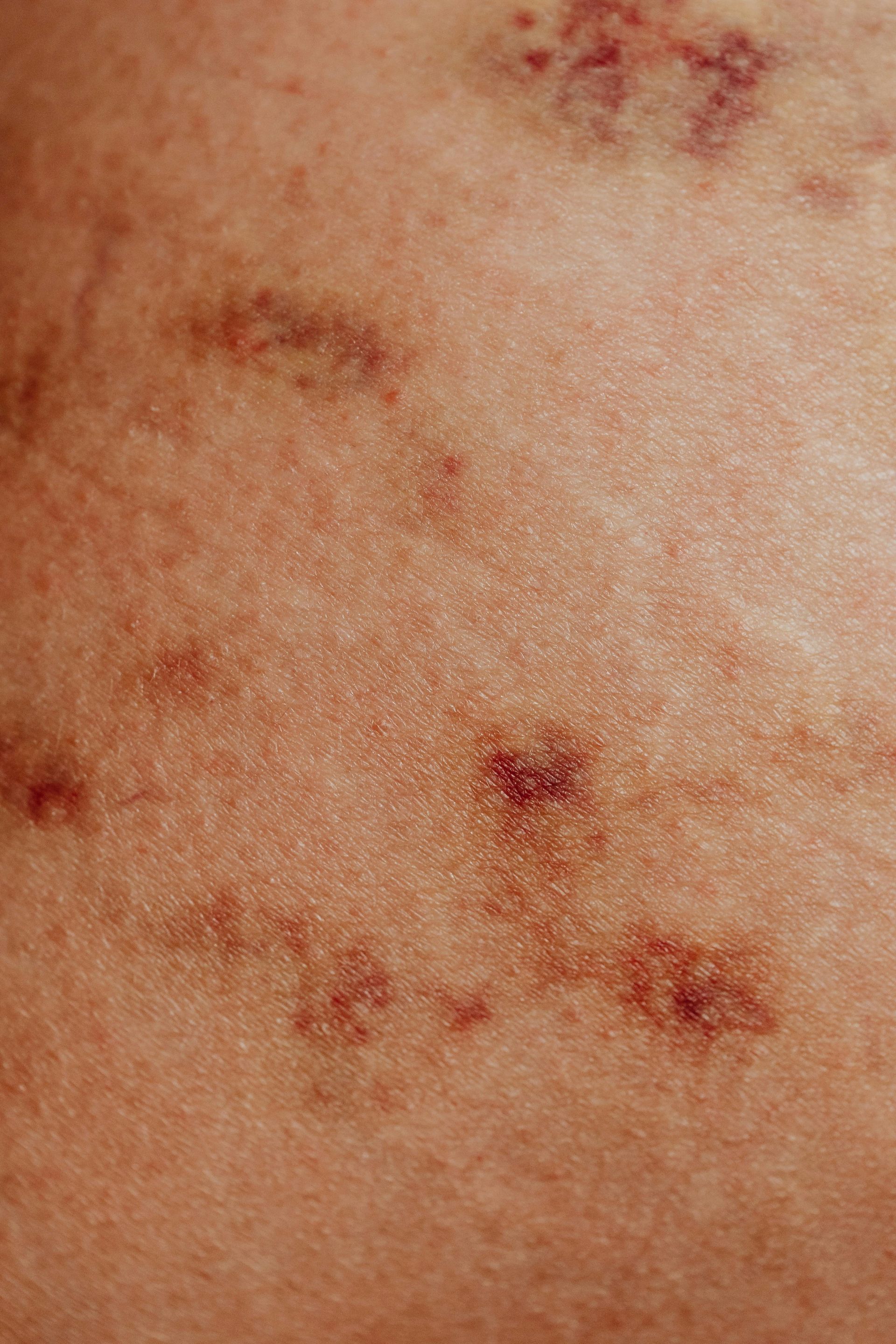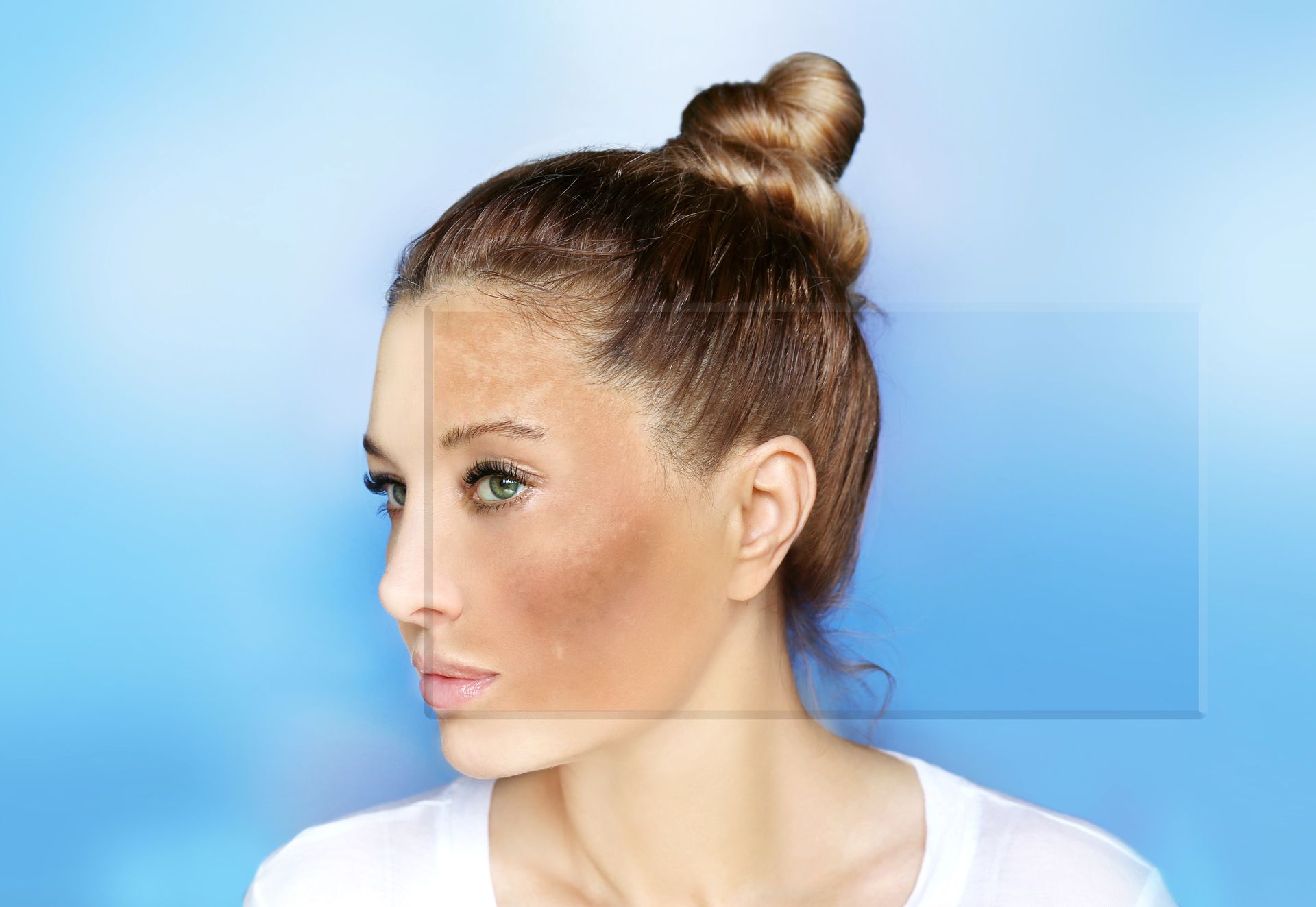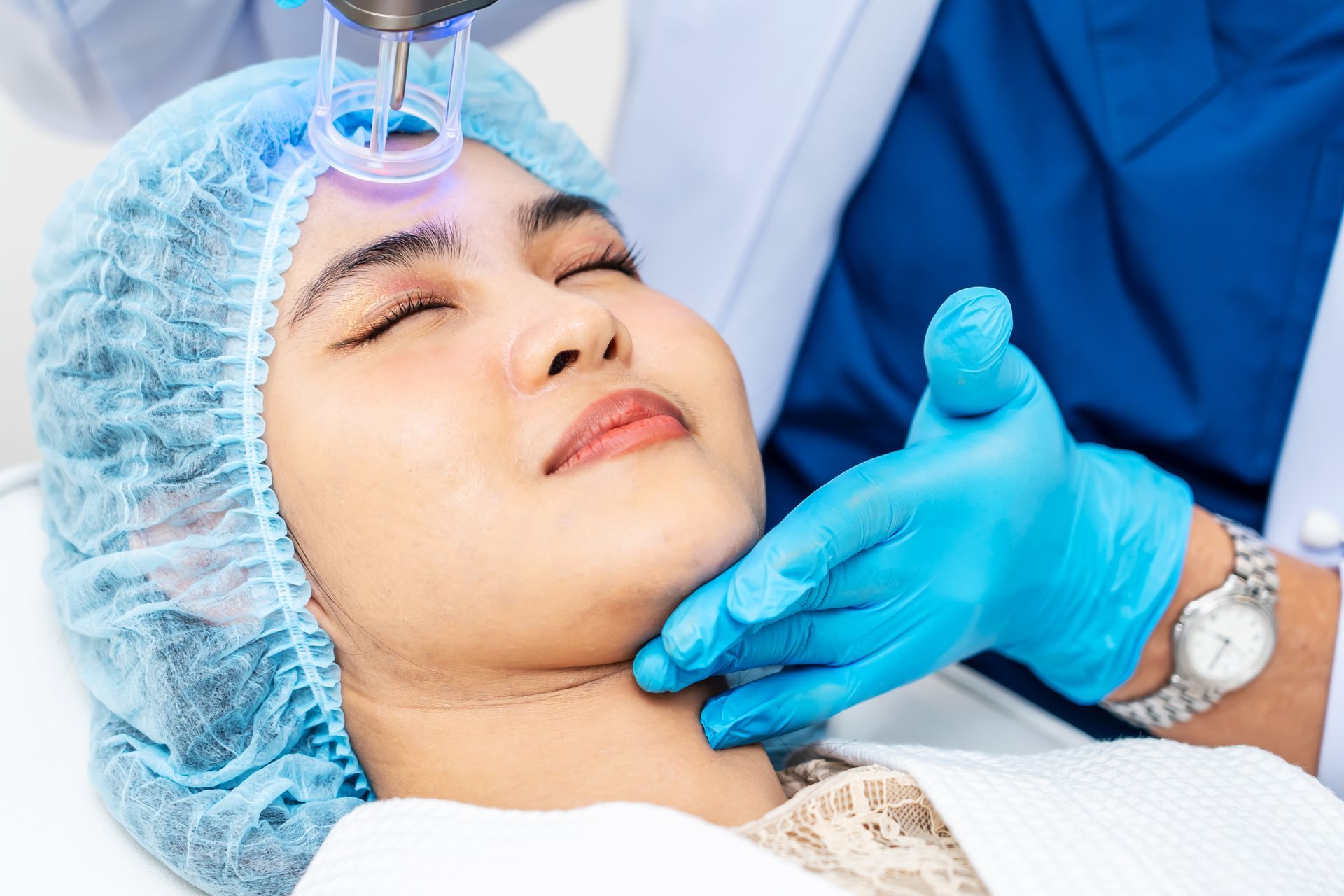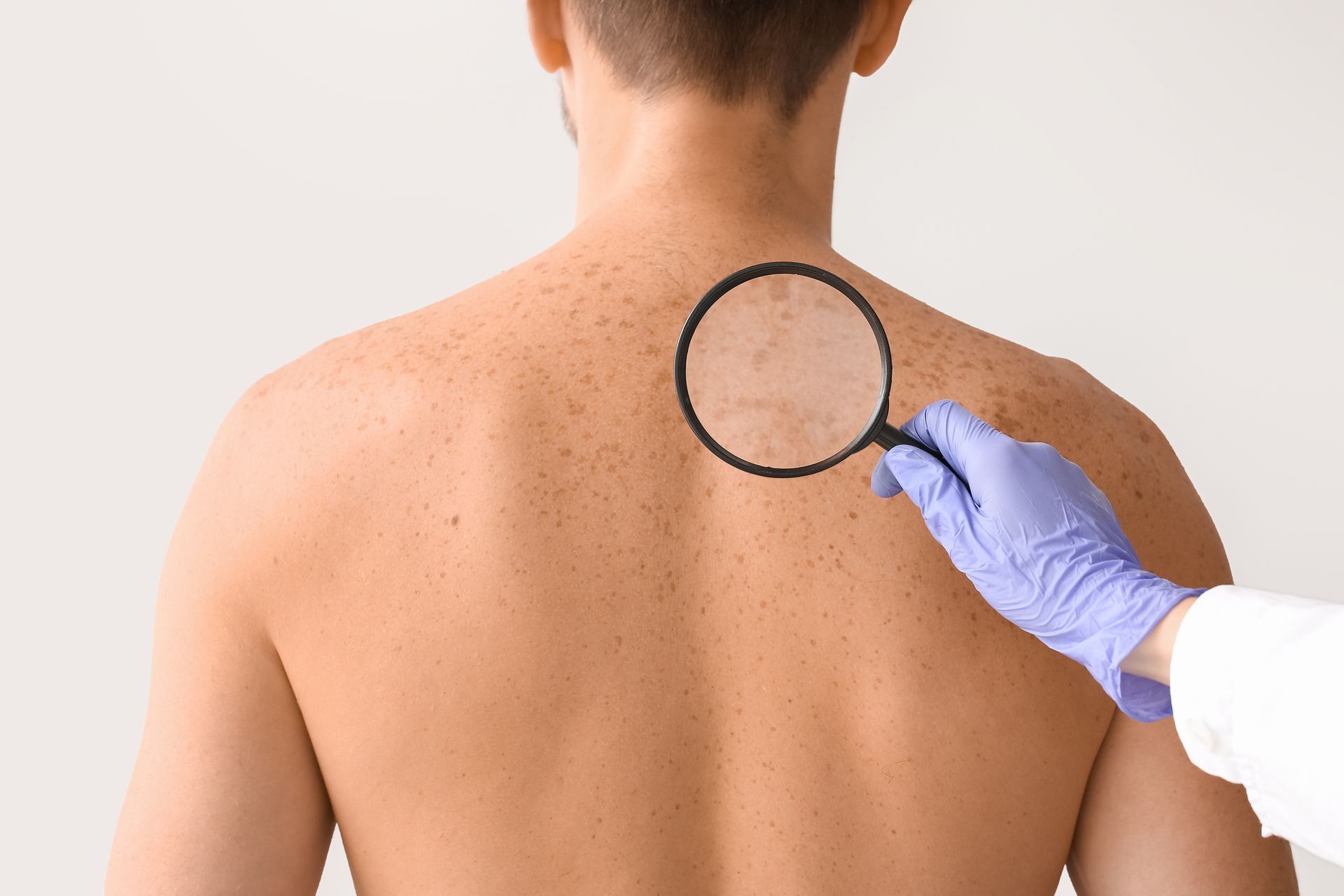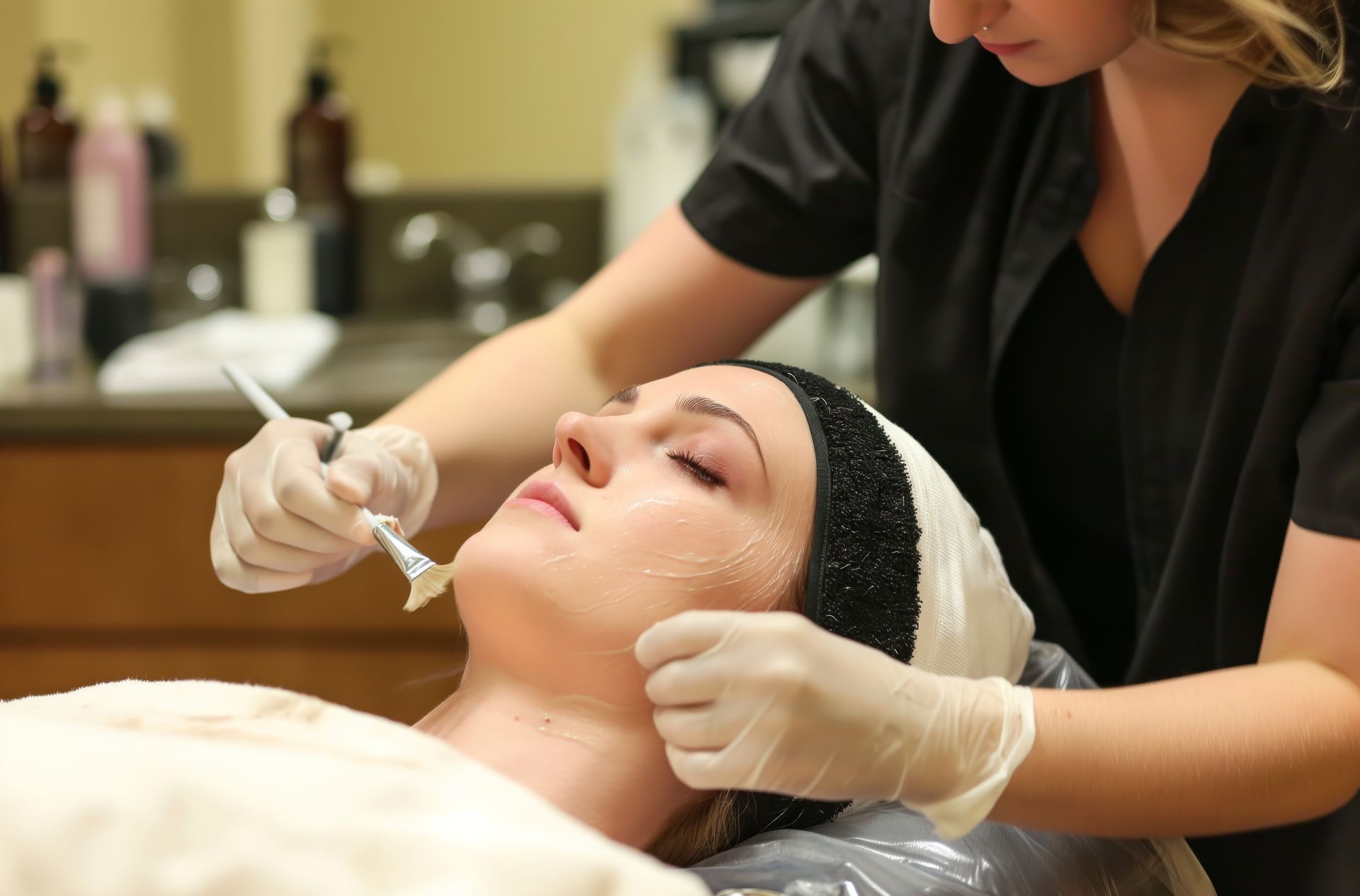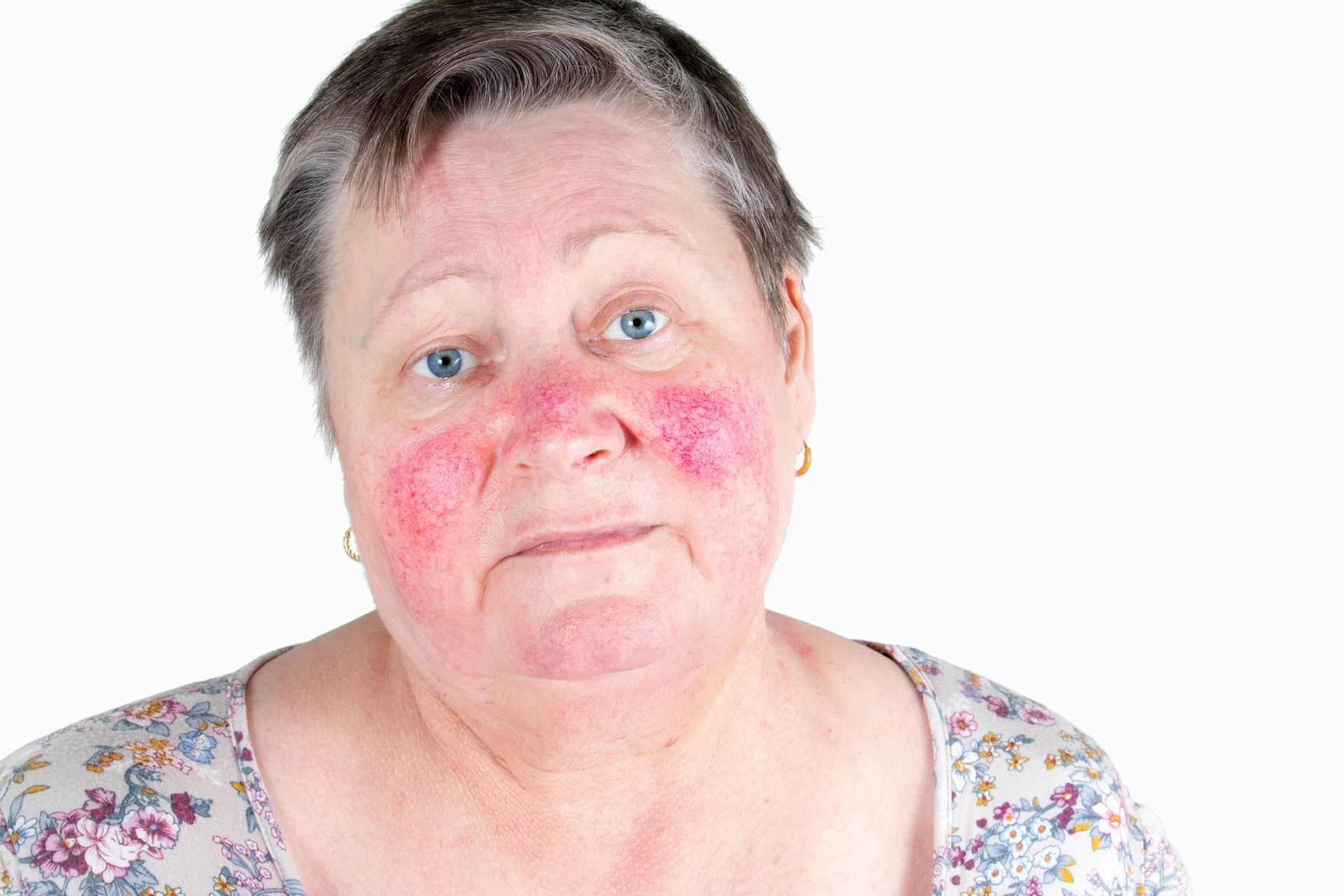Rosacea: A Red and Flushed Face
Rosacea is a common skin condition that affects millions of people worldwide, characterized by persistent redness and visible blood vessels on the face. If you’ve noticed frequent flushing, redness, or small bumps resembling acne on your face, you might be dealing with rosacea. In this blog post, we’ll dive into the causes, symptoms, treatment options, and how a dermatologist can help you manage this condition.
At
Kaveri Karhade, MD Dermatology, located in San Francisco and South Bay, CA, we specialize in diagnosing and treating a wide range of skin conditions, including rosacea. If you’re experiencing the symptoms of rosacea or any other skin concern, call us at
(415) 234-0809 to book a consultation today.
What is Rosacea?
Rosacea is a chronic skin condition that primarily affects the face, leading to persistent redness, flushing, and, in more severe cases, visible blood vessels and acne-like bumps. While the exact cause of rosacea is still unclear, it’s believed to be a result of a combination of genetic, environmental, and immune factors. Unlike regular acne, rosacea doesn’t go away on its own and can worsen over time if left untreated.
There are four main types of rosacea:
- Erythematotelangiectatic Rosacea: Marked by red skin and noticeable blood vessels.
- Papulopustular Rosacea: Characterized by red bumps and pus-filled pimples, often mistaken for acne.
- Phymatous Rosacea: Causes the skin to thicken, especially around the nose, leading to a swollen, bumpy appearance.
- Ocular Rosacea: Affects the eyes, causing dryness, irritation, and in severe cases, vision problems.
The severity and presentation of symptoms vary between individuals, and it's important to seek professional help to manage the condition effectively.
Common Symptoms of Rosacea
Rosacea manifests through a variety of symptoms, and these can often be mistaken for other skin conditions, such as acne or eczema. Common signs include:
- Persistent facial redness: The most noticeable symptom is a constant blush or flush, particularly in the central part of the face, including the cheeks, nose, and forehead.
- Visible blood vessels: In more severe cases, the blood vessels under the skin may become visible, giving the face a reddish or spider-web-like appearance.
- Bumps and pimples: Some individuals develop small, red, pus-filled bumps that resemble acne.
- Dry, irritated skin: The skin may feel tight, itchy, and dry, especially when exposed to triggers.
- Thickened skin: In more advanced stages, the skin may thicken, particularly around the nose (a condition known as rhinophyma).
- Eye problems: Rosacea can also affect the eyes, leading to redness, irritation, and a gritty sensation.
If you're experiencing any of these symptoms, it’s essential to consult a dermatologist. Early detection and treatment can help prevent rosacea from progressing.
Triggers of Rosacea Flare-Ups
Understanding what triggers rosacea flare-ups can help manage the condition more effectively. While triggers vary from person to person, the most common ones include:
- Sun exposure: Ultraviolet (UV) light can aggravate rosacea, making sunscreen a critical part of any skincare routine.
- Stress: Emotional stress and anxiety are well-known triggers of rosacea flare-ups.
- Hot beverages and spicy foods: These can cause the blood vessels to dilate, leading to increased redness.
- Alcohol: Drinking alcohol, particularly red wine, can lead to facial flushing and aggravate rosacea.
- Extreme temperatures: Hot weather, cold weather, or wind can trigger rosacea symptoms.
- Certain skincare products: Some products, especially those containing alcohol, fragrance, or other irritating ingredients, can worsen rosacea.
Identifying your specific triggers is an important step in managing the condition. Your dermatologist can help you create a plan to avoid these triggers and reduce flare-ups.
Effective Treatments for Rosacea
Although there is no permanent cure for rosacea, a variety of treatments can significantly reduce symptoms and prevent flare-ups. The right treatment will depend on the type and severity of rosacea. Common treatment options include:
- Topical medications: To reduce redness and inflammation, these medications are applied directly to the skin. Some common topical treatments are metronidazole, azelaic acid, and ivermectin.
- Oral antibiotics: Low-dose oral antibiotics, such as doxycycline, are often prescribed for their anti-inflammatory properties.
- Laser therapy: For patients with visible blood vessels, laser or intense pulsed light (IPL) therapy can be effective in reducing redness and visible veins.
- Lifestyle changes: Identifying and avoiding personal triggers (such as certain foods or skincare products) can help manage flare-ups.
- Sunscreen: Daily use of sunscreen with at least SPF 30 is crucial in protecting the skin and preventing flare-ups caused by sun exposure.
Your dermatologist may recommend a combination of treatments to best manage your rosacea, especially since the condition can vary significantly from person to person.
When to See a Dermatologist
If you suspect that you have rosacea, it’s important to seek professional care. A dermatologist can provide a diagnosis and recommend a personalized treatment plan. Consider consulting a dermatologist if you're dealing with:
- You experience persistent redness or flushing that doesn’t go away.
- You have visible blood vessels or acne-like breakouts that are not responding to over-the-counter treatments.
- Your symptoms are causing discomfort or affecting your self-confidence.
- You have eye irritation or other symptoms of ocular rosacea.
At Kaveri Karhade, MD Dermatology, we’re committed to helping you manage rosacea and improve your skin’s health. Whether you need a diagnosis, treatment plan, or lifestyle advice, our team is here to guide you every step of the way.
Contact Us for Expert Rosacea Treatment
If you’re struggling with
rosacea, it’s time to take control of your skin health. At
Kaveri Karhade, MD Dermatology, we offer specialized treatment plans tailored to your unique skin concerns. Located in San Francisco and South Bay, CA, we provide comprehensive care to help you manage rosacea and regain confidence in your appearance. We also offer
skin lesion removal,
microcoring,
laser treatments,
ear piercings, and more. Call us today at
(415) 234-0809 to schedule your consultation, and let’s work together to achieve healthier, clearer skin.
FAQs
